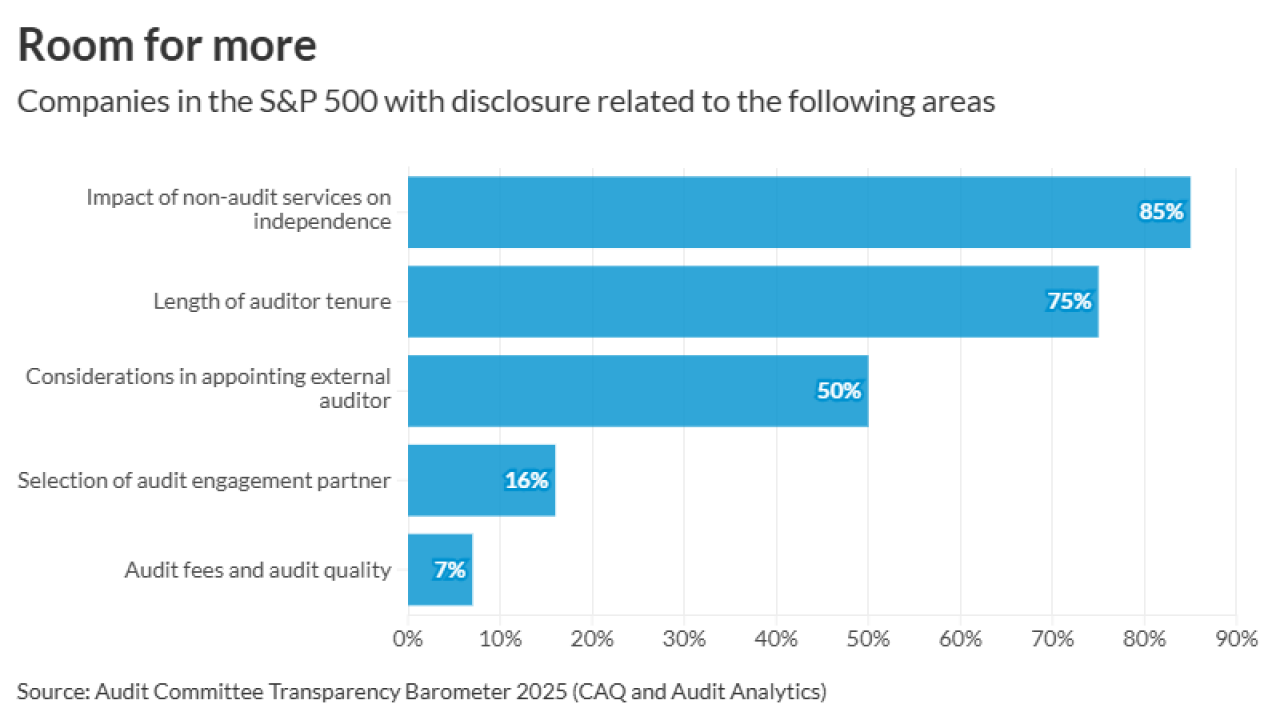Washington (Oct. 28, 2003) -- Corporate executives have raised concerns that the Public Company Accounting Standards Board’s plan for new internal control reporting by auditors will create unnecessary cost burdens for American businesses.
The proposal is designed to implement provisions of the Sarbanes-Oxley Act requiring public accounting firms that conduct audits to “attest to, and report on, the assessment made by management” concerning the company’s internal controls. But some corporate officials contend that the proposed standard advanced by PCAOB earlier this month goes far beyond the intent of Congress by requiring outside accountants to perform a “detailed audit” of their client’s internal controls.
“It is my view that our Congress men and women intended for this language to mean what it literally states, and not be subject to the interpretation of the PCOAB,” Kimball International Executive Vice President Robert F. Schneider told the Board. “Specifically, public accounting firms should attest to the assessment made by management, not perform a detailed audit of internal controls.”
Schneider called this a “very important” distinction because “a detailed audit of internal controls each year is extremely costly to American business and its competitiveness.”
Other corporate officials voiced concerns about provisions in the proposed standard setting limits on how extensively independent accountants may rely on the work of internal auditors or other “third parties” in attesting to the effectiveness of the client’s internal control over financial reporting.
Under PCAOB’s plan, auditors would be allowed to “incorporate into the audit…some of the work performed by others,” but they would be expected to do their own digging to obtain the “principal evidence” of the effectiveness of the company’s internal controls.
Under this approach, “the more extensive and reliable management’s assessment is, the less extensive and costly the auditor’s work will need to be,” the Board said.
“I was happy to believe that the PCAOB was actually considering the exorbitant costs now required in complying with all the new Sarbanes-Oxley regulations,” said TiVo Assistant Controller David Higginbotham, one of the corporate officials who was initially cheered by the Board’s expressed willingness to avoid duplication of audit work.
“I wanted to believe that if we, management, did our job of documenting and testing our internal controls well, that we could reduce the final costs we must bear with regards to the required attestation by external auditors,” he said in his comments to the PCAOB.
Higginbotham’s initial optimism turned to dismay after receiving an “Alert” from TiVo’s external auditors, KPMG, which “completely omitted the reference to reduce costs” and stressed that overall, “KPMG’s own work would have to provide the principal evidence for their opinion.”
Higginbotham, who chairs his company’s Sarbanes-Oxley Compliance Committee, called on PCAOB to eliminate possible confusion over this issue through new “final wording” that “would allow companies to fulfill the intent of Sarbanes-Oxley with the least expense possible.”
“At the end of the day, while most investors want to know they can rely on the financial statements of public companies, they also want to invest in companies that are increasing the value of their investment rather than spending more to comply with regulations,” he told the Board.
-- Ken Rankin





